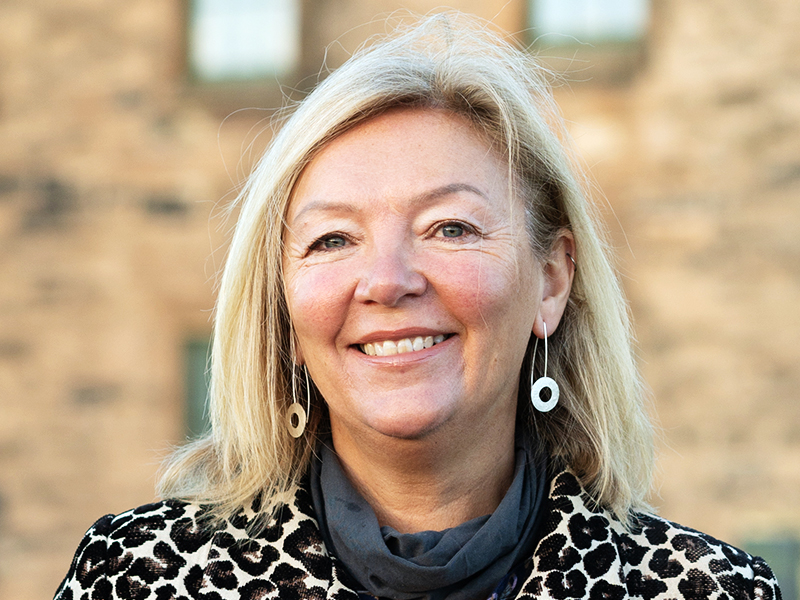With an expected rise in the number of people being diagnosed with sight loss in Scotland, the third sector’s role is more important than ever, says Forth Valley Sensory Centre chief executive, Jacquie Winning MBE
There are around 188,000 people in Scotland who have significant sight loss.
And that figure is set to increase rapidly over the next decade as the population ages, and an expected rise in health conditions that are associated with visual impairment, such as obesity and diabetes.
Of course, behind those figures are real people who are facing the reality of adjusting to life with visual impairments or blindness.
Losing your vision can have a devastating impact on people’s lives, wellbeing and health – loss of confidence, lack of opportunity to get out and enjoy the things you used to, social isolation and loneliness – as well as the day-to-day challenges of simply walking around your neighbourhood or cooking a meal.
And the expected rise in people developing visual impairments is something that throws the value and purpose of the third sector in supporting people being diagnosed into sharp relief.
One of the key things that has been recognised by policy makers in recent years is the importance of a seamless pathway for anyone receiving a diagnosis of sight loss.
That means local authorities, health boards and the third sector working hand in hand to ensure that someone losing their sight gets everything they need to live their life to the full without delays or red tape.
Charities like Forth Valley Sensory Centre have a key role to play.
We support around 20,000 people every year across central Scotland, including Stirling and Clackmannanshire.
We come in at the diagnosis stage, offering peer support and a warm, safe, welcoming environment in which people experiencing sensory impairment have their feelings and concerns recognises.
One of the most important things we do is take on the loneliness and social isolation that is one of the most challenging things about losing your sight.
Our activities and events programme focus on tackling isolation and loneliness. We offer more than 30 different groups, set up and run in collaboration with our centre users, and our café, with food prepared by our wonderful chef, David, who is both blind and deaf and constant reminder of the limitless things that people with sensory loss can and do achieve every day.
And our centre users tell us that meeting people in a similar situation – perhaps who have had a visual impairment their whole life is inspiring and helps them to realise that the limits they thought they were facing aren’t as solid or insurmountable as they first thought.
Because when you lose your vision, you don’t have to lose yourself too.
Forth Valley Sensory Centre – and organisations like it that exist right across the length and breadth of Scotland – mean people can meet peers, gain independence, grow their confidence, have fun and make friends and try new things.
And it is in the lives of the people we support that best captures the critical role the third sector has in the Scottish sight loss pathway.
Our Sight Loss Ambassador Laura Cluxton recently spoke at the Scottish Vision Strategy Conference in Edinburgh.
Put together by the RNIB, the event took place at the end of March and brought together experts and practitioners on sight loss to discuss how best to improve support for people from diagnosis to living well with an eye condition.
Laura spoke about her own experiences of sight loss, caused by the genetic condition retinitis pigmentosa which causes the cells in the retina to break down slowly over time.
Her words put it far better than I can: “Growing up I lived all my life with partial sight. I was living in a sighted world trying to hide my sight loss and pretend there was nothing wrong.
“The centre is the place where I started the process of living a new life, a life embracing sight loss. Over time, I learned to accept my sight loss. This was not easy, but the centre it made my transition feel less isolating and let me see that I am not the only one and that there are many others out there who have been through a similar journey. It has helped me to regain my confidence, and led me on to become independent, happy, and content and find myself again.”
Jacquie Winning MBE is chief executive of Forth Valley Sensory Centre (FVSC). For more information on FVSC, visit https://www.forthvalleysensorycentre.org/







